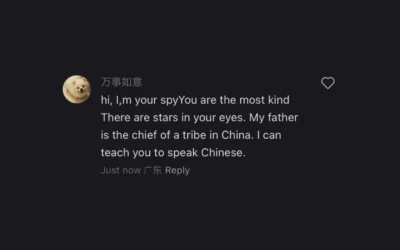As the holiday season is officially in full swing, many people are thinking about their weight and body size more than usual. I spoke with Rhiannon de Vries, a nutritional consultant and health at every size and intuitive eating educator, to get some advice on approaching the holidays in a healthy way.
De Vries has been a nutritional consultant since 2018, and through her research, she has found that intuitive eating, which relies on listening to your body and hunger cues, is the style of eating that makes the most scientific sense. While the internet is full of people selling eating plans that tell you how to eat, through her research, De Vries has found that there is no “best” way to eat.
She has found that most health and nutrition myths fall under the umbrella of trying to be perfect around food, but that’s not possible. She said, “there’s no such thing as eating perfectly, and trying to do that has been clinically proven to be poor for people’s health.”
For those who are nervous about getting unhealthy and gaining weight because of the food they eat during the Christmas season, De Vries wants people to understand that no one meal, day, or week of eating will impact a person’s health long term. She even said that a person could try to eat only ice cream for a whole week, and while she doesn’t think someone could actually do that, if they did, it wouldn’t impact their health long term.
If you have family members or friends who comment on your weight, De Vries believes that those people think they are being helpful. Her advice for that situation is to tell that person that it’s your body and you can make your own decisions.
If you hear people talking about another person’s body negatively, De Vries says you can say something like, “oh, it’s too bad that society makes you feel that way about people.” She recommends saying something small to encourage people not to be negative about people’s bodies.
Around the holidays, many people hear comments about how much they are eating. De Vries suggests that if someone comments on the amount of food you have, tell them “mind your own plate.”
Rather than assuming that your health can be determined by your body size, De Vries recommends looking at other factors, such as your blood pressure and cholesterol levels. She also said that some people might notice increased stamina while exercising but feel like they aren’t improving their health because their weight hasn’t changed. She wants them to know that metrics such as stamina, sleep, and how they feel overall are better health indicators than their weight. De Vries recommends that people focus less on the scale and more on these other factors when it comes to determining if their health is improving.
De Vries also has many resources for people interested in improving their relationship with their bodies and learning about intuitive eating. Her website lists resources that include books on intuitive eating and research articles on weight perception and stigma.
She has also collaborated with The Body Love Society who created the UnDiet Your Mind app, which was designed to help people stop dieting, embrace their bodies, and learn about intuitive eating. Her code “BRAVE” saves you 50 percent off the first month of your membership.
If you are interested in working with De Vries or learning more about health at every size and intuitive eating, you can connect with her on Instagram at @abravenewfoodie.





0 Comments